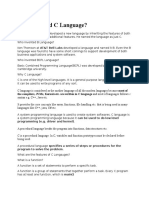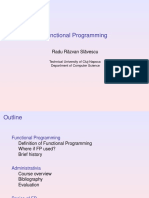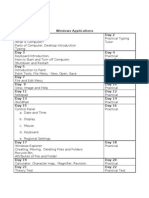0% found this document useful (0 votes)
32 views5 pagesUnit 5 Functions
The document provides an overview of functions in C, explaining their declaration, definition, and usage, as well as the importance of function prototypes and built-in libraries. It details parameter passing methods, including 'Call by Value' and 'Call by Reference', and illustrates these concepts with examples. Additionally, it demonstrates how to use the <stdio.h> library for input and output operations in C programs.
Uploaded by
njnim55Copyright
© © All Rights Reserved
We take content rights seriously. If you suspect this is your content, claim it here.
Available Formats
Download as PDF, TXT or read online on Scribd
0% found this document useful (0 votes)
32 views5 pagesUnit 5 Functions
The document provides an overview of functions in C, explaining their declaration, definition, and usage, as well as the importance of function prototypes and built-in libraries. It details parameter passing methods, including 'Call by Value' and 'Call by Reference', and illustrates these concepts with examples. Additionally, it demonstrates how to use the <stdio.h> library for input and output operations in C programs.
Uploaded by
njnim55Copyright
© © All Rights Reserved
We take content rights seriously. If you suspect this is your content, claim it here.
Available Formats
Download as PDF, TXT or read online on Scribd
/ 5























































































